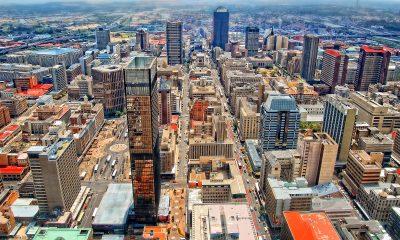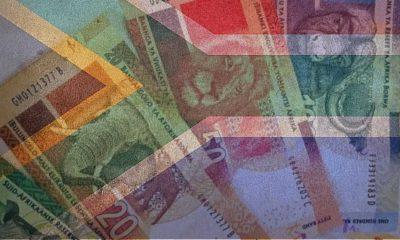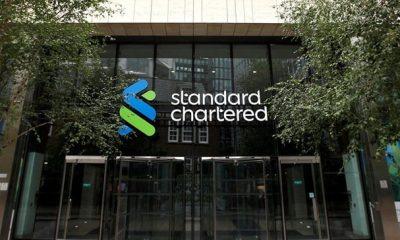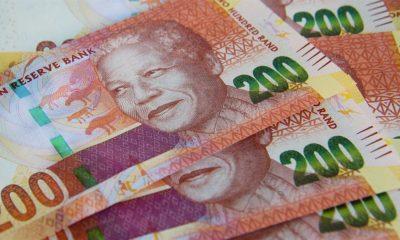411
Rand Drops as South Africa’s Coalition Government Faces Budget Vote Uncertainty

The rand has taken a significant hit as uncertainty looms over a critical budget vote in South Africa’s parliament. Political tensions between the African National Congress (ANC) and the Democratic Alliance (DA) have raised concerns about the stability of the country’s coalition government, sending ripples through the currency and bond markets.
A Key Vote, Rising Tensions
South African lawmakers are set to vote on the fiscal framework of the national budget this afternoon. The vote comes at a time of heightened uncertainty, with the ANC, the largest party in the ruling coalition, struggling to secure support from the opposition DA over proposed tax increases. The DA, which is considered market-friendly, has announced that it will oppose the legislation, fueling fears that it may withdraw from the government of national unity (GNU) altogether if the law is passed without their backing.
This rift over the budget is already having a noticeable effect on South Africa’s financial markets. The rand slumped as much as 1.3%, trading 0.9% weaker at 18.64 per dollar by 13:54 in Johannesburg. The yield on government bonds maturing in 2035 rose sharply by 22 basis points, hitting the highest level in nearly eight months.
Market Reactions and Political Uncertainty
The uncertainty surrounding the vote has resulted in a decline in investor confidence, as reflected by the FTSE/JSE Banks Index dropping by 3%. According to Annabel Bishop, chief economist at Investec Bank, the rand’s slump can be attributed to the increasing political noise and growing fears over the future of the coalition government.
“There are concerns about the sustainability of the GNU,” Bishop stated. “National Treasury has reassured that the government will continue functioning, and there is still time to reach an agreement, but the markets are nervous.”
Despite these assurances, the lack of a clear resolution between the ANC and the DA is unsettling investors. As it stands, the ANC has pushed forward with a proposal to increase value-added tax (VAT) as part of the fiscal framework, a point of contention between the two parties. While the DA is adamantly opposed to this increase, smaller political groups within the coalition, including the Inkatha Freedom Party (IFP) and Rise Mzansi, have voiced support for the framework.
What’s Next for South Africa’s Budget?
Lawmakers will meet at 2 p.m. to vote on the fiscal framework, which outlines the country’s economic policy, revenue projections, and spending limits. While the ANC has the backing of smaller coalition parties, it may fall short of a majority without the DA’s support. If the DA remains opposed, the ANC will need additional votes from outside the coalition to ensure the budget passes.
There’s also been a call from the DA to postpone the vote, citing procedural irregularities in the lead-up to the meeting. The opposition Economic Freedom Fighters (EFF) have raised similar concerns, further complicating an already tense political situation.
The Future of the Coalition Government
While talks between President Cyril Ramaphosa of the ANC and DA leader John Steenhuisen were described as “very good,” no final agreement has been reached. The DA remains firm in its opposition, with spokesperson Karabo Khakhau stating, “There are currently no negotiations at all.”
As the vote approaches, the stability of South Africa’s coalition government hangs in the balance, and with it, the future of the country’s economic policy. If the budget passes without the DA’s support, it could signal a deeper fracture within the GNU, further affecting the country’s political and economic landscape.
A Crucial Day for South Africa’s Economy
The rand’s slump serves as a reminder of how political uncertainty can reverberate throughout the economy. With the budget vote just hours away, all eyes will be on South Africa’s lawmakers to see whether they can come together to approve the fiscal framework or if the rift between the ANC and DA will deepen, pushing the country further into uncharted political waters.
South Africans and global investors alike are bracing for the outcome, knowing that the results of today’s vote could shape the country’s economic future in profound ways.
South Africa’s political landscape is at a crossroads. As tensions rise over the budget vote, the impact on the rand and the broader economy is undeniable. The outcome of today’s vote will set the stage for what happens next, with much at stake for South Africa’s coalition government and the future of its economic policies.
{Source BusinessTech}
Follow Joburg ETC on Facebook, Twitter , TikTok and Instagram
For more News in Johannesburg, visit joburgetc.com



























